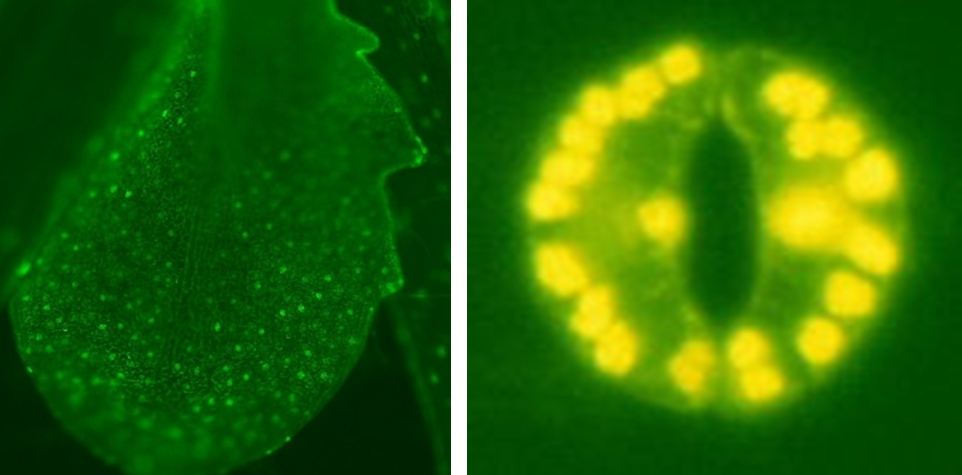
This project addresses some of the biggest challenges facing society and governments worldwide—ensuring food security in a changing climate. The universities involved have particular strengths in Plant Sciences and Global Change Biology within the Robert Hill Institute (Sheffield); the Centre for Carbon, Water and Food (Sydney); the Lady Emily Smyth Agricultural Research Station (Bristol); and the Centre of Excellence for Climate Change, Woodland and Forest Health (UWA). This project will bring researchers together to work toward producing crops better adapted to future climate scenarios.
The team will employ novel approaches to uncover the molecular mechanisms underlying the developmental and regulatory responses of stomata; microscopic pores on leaf surfaces that regulate plant photosynthesis and water loss. The crucial function of stomata in governing global plant productivity and water use is highly sensitive to climate change, but little is known about the underlying mechanism. The team will combine expertise in molecular genetics, stomatal physiology and crop science to identify the genes underpinning the regulation of stomatal development and function so that stomatal traits can be included in future crop breeding programmes for drought tolerance and water use efficiency. In the global climate of the future, food security will depend upon advances in plant science that combine improved crop productivity, reduced water demand and improved drought tolerance. The network will determine whether altering stomatal characteristics could be successfully used to create drought tolerant crops and/or crops better suited to growth at higher atmospheric carbon dioxide levels.
Selected outcomes
- Five research papers published.
- Professors Gray and Quick jointly supervise a PhD student funded by the Grantham Institute (started studying 2015).